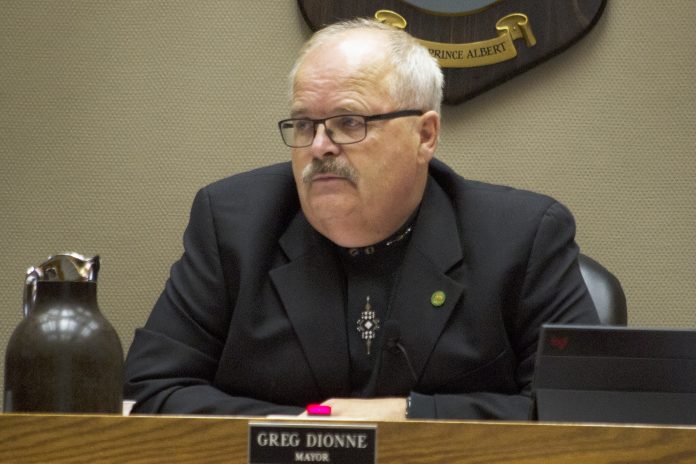A provincial plan to move back the upcoming 2020 municipal election to early November isn’t sitting well with Prince Albert Mayor Greg Dionne.
On Wednesday, the provincial government announced that the 2020 provincial, municipal and school board election dates would be adjusted to provide more separation between the two dates.
The provincial election was originally scheduled to be held just five days after municipal elections. Holding two votes so close together risked voter fatigue and confusion critics argued.
The province suggested the municipal elections be pushed to 2021, but that solution also wasn’t welcomed by the leaders of some municipalities. Regina Mayor Michael Fougere said it was important to respect the four-year mandate and not extend municipal governments to a five-year term. He said a 2021 election would do that and be “problematic.”
The latest decision – to hold the provincial election on Oct. 26 and the municipal vote on November 9. Going forward, provincial elections will be held on the last Monday in October and municipal votes on the second Wednesday in November unless it falls on Remembrance Day.
“After consulting extensively with both rural and urban municipalities, it was clear they wanted to keep their elections in the fall of 2020,” Premier Scott Moe said.
“We believe we have reached a reasonable compromise that will allow local officials time to prepare for these changes.”
The solution was endorsed by both the Saskatchewan Urban Municipalities Association (SUMA) and the Saskatchewan Association of Rural Municipalities (SARM).
SUMA president Gordon Barnhart said the “established election dates promote accountability and transparency,” while SARM president Ray Orb said his organization is “generally satisfied” with the decision.
“Our members did not want to postpone municipal elections by one year and although a date change was not our preferred option, the current option will allow time for our farmers to complete harvest and will not interfere with SARM’s Midterm Convention 2020,” he added.
But Dionne said the new election date is still too close to the provincial vote and argued that it puts the city in a tough spot when it comes to completing the budget, due by end of December each year.
“Could you imagine the sign fiasco?” he asked rhetorically. “There will be thousands of signs up in the city. I went for this once before. When I was running for council, I’d go to the door and they’d ask what party I was running for.”
Voter confusion isn’t Dionne’s only concern. With a federal election in October 2019, followed by two elections in quick succession a year later, the mayor is worried that by the time people are set to vote in their local elections, the third of three votes, they’ll be tired of voting and turnout will be low.
He also argued that the mid-November election will cost new councillors their say on the following year’s municipal budget.
“The election is in November, two weeks later we’ll call a meeting to swear in the new council. BY the first of December we’re up and running. That means I have to get the old council to approve the 2021 budget. These people are not going to have input.”
It was suggested by some that the provincial government move its election up to the spring, but as that is when Saskatchewan’s budget is due, Moe said the date wouldn’t work with the legislative calendar.
Holding a fall election allows the provincial leader to go in as a fresh government, whoever that may be, and deliver a throne speech invigorated by an election and deliver that speech on how you’re going to achieve the policy platforms that you have set up in that election platform,” he said.
Dionne would have liked to see the municipal term shortened, not lengthened, and had those elections moved to the spring of 2020. That way, he said, councillors would have enough time to learn the intricacies of the job and be able to make an informed decision at budget time.
“If they would have moved us, we would never have a clash again. My recommendation was spring because then a new council would have six or seven months to understand the system and then approve the budget. Last time, we had vice new council members. They really had no input into the budget for the first year.”
Dionne said when he learned of the decision to move the city’s election back to mid-November, he was “shocked.
“They did all this consulting and spent time and energy to move it 14 days,” he said.
Dionne said he had spoken to his MLA, and that council will bring up the issue to address it, including possibly taking “appropriate action as a city to try to lessen the confusion.”
He did not elaborate as to what measures the city would consider.
— with files from the Regina Leader-Post


